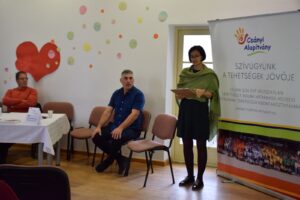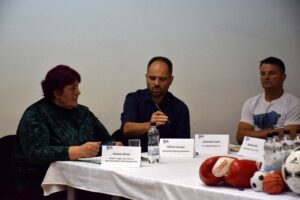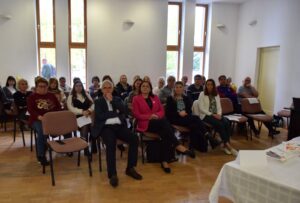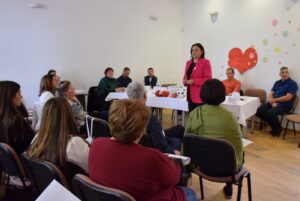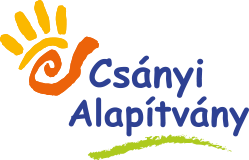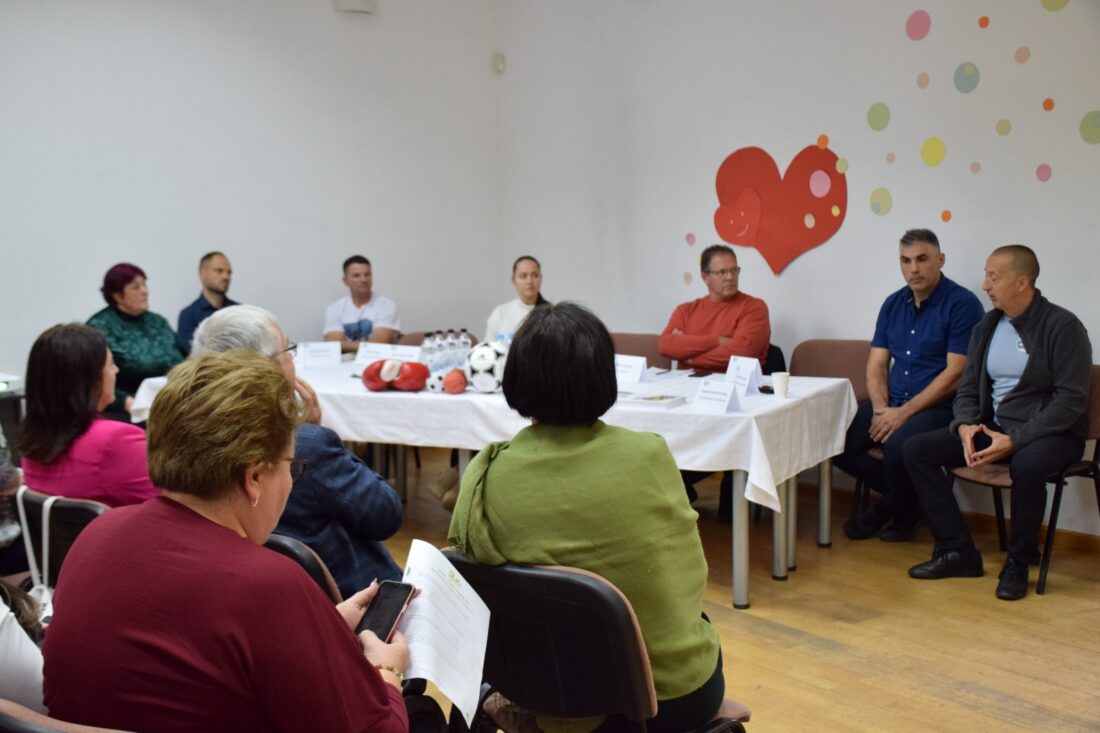
Roundtable Discussion within the R-GO Project
As part of the R-GO – Ready, Steady, Go – inclusive sports events for all project, a roundtable discussion was held on October 9 in Csíksomlyó, at the new headquarters of the Hargita County Directorate for Social and Child Protection. The aim of the event was to bring together professionals working in sports and initiate a dialogue on opportunities to support disadvantaged children and young people.
Participants included boxer Lóránd Tódor, coach at Bene Regaz SK; karate coach Zsolt Domokos Szatmári from Sic-Szépvíz Karate-Do; physical education teacher and aikido master Endre Túrós, president of the Musubi Association. The Székelyföld Football Academy was represented by Alexandra Péter, a former professional female footballer, and Csongor Miklós, sports psychologist, represented the Székelyföld Ice Hockey Academy. Tamás Oláh-Berecz, one of the organizers of the Csányi Foundation’s sports events supporting disadvantaged children and youth, also participated.
The event began with a welcome speech by CEO Zoltán Elekes, followed by a brief introduction to the R-GO project by host Katalin Gál. She presented the results of research conducted within the project, noting that best practices could serve as tools and starting points for youth professionals working with disadvantaged groups.
Éles Annamária, mentor from the Csányi Foundation in Mohács, then gave a visually rich presentation about the Erasmus+ camps held last August, highlighting diverse sports and entertaining programs that provided 37 children from Hargita County and 33 from Hungary with life-changing experiences. The camps helped participants develop teamwork, problem-solving, and independence. Mornings were spent learning the rules of volleyball, football, and swimming, while afternoons involved rotating activities such as visiting the Saint Nicholas Water and Treading Mill, exploring the Busóudvar complex in the city center, or trying canoeing on the Danube branch. Afternoon sessions included volleyball, ping pong, badminton, yoga, and aikido, along with swimming, which was both enjoyable and refreshing in nearly 40-degree heat.
Following the camp presentation, Piroska Szabóné André gave a concise yet comprehensive overview of the Csányi Foundation’s activities and mission, supported by a colorful photo compilation.
The roundtable opened with the premiere of a 35-minute short film, featuring five disadvantaged but highly successful children and young people. They shared candid reflections on their achievements, challenges, inner struggles, and the journeys that led to their success.
During the discussion, parallels emerged regarding financial support: in Hungary, the Csányi Foundation’s Életút Program supports talented children from disadvantaged backgrounds from a young age through to obtaining a diploma or vocational qualification. In contrast, in Hargita County, costs for training or equipment can pose a challenge for children in child protection or extreme poverty.
Lóránd Tódor emphasized that children and youth from disadvantaged backgrounds have fewer opportunities in sports, and the coach’s role is to help them overcome feelings of rejection, abandonment, or inferiority. He stated that a good coach must act as a guide, educator, and psychologist simultaneously. He also stressed the importance of allowing children to experience success by structuring matches accordingly, as lack of achievement can diminish interest in the sport.
Zsolt Domokos Szatmári highlighted the importance of support and noted the absence of children under child protection in training sessions.
Sports psychologist Csongor Miklós underlined the necessity of a non-abusive environment for children, specifically addressing verbal abuse, shouting, and constant dissatisfaction by coaches. He emphasized that self-awareness among coaches is crucial and that sport should focus not on performance or results but on meaningful engagement and long-term healthy lifestyles. Both parents and coaches need to understand the developmental stages children go through and adjust expectations accordingly.
Alexandra Péter shared her experience playing football with girls from the child protection system, noting that they often worked harder and performed better than their peers, which helped them integrate fully into the team.
At the conclusion of the discussion, participants expressed support for the initiative and hope that this dialogue would continue in the future.
